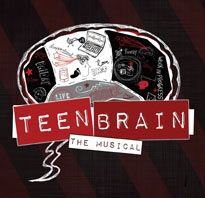Adolescence
Discussing Illness Without Alienating the Ill
Can the arts provide a non-threatening way to discuss illness?
Posted February 20, 2015
Anyone who has sat in the bright glare of scrutiny of the patient’s chair knows how difficult it is to remain calm, creative and objective when dissecting one’s own illness. Our first reactions can thwart our own healing through worry, lack of sleep, a deep dive into comfort food, alcohol or drugs, giving up on exercise (what’s the point?) or isolation. Doctors and psychologists often forget the importance of the wounded in healing their own wounds. Due to the understandable pressure of time, overwhelming workload and insurance demands, our health care system is incentivized to code, dictate and dismiss rather than engage the patient in healing herself. Professionals turn up the spotlight on illness to improve efficiency and lose the person in the process. Caretakers become collateral damage in a serious illness, their needs forgotten in the clinical approach to fixing the patient. In the long run, this approach is grossly inefficient and leads to short term results. The arts offer a fresh look at illness without alienating the ill.

Several Academy Award Nominees have bared the ugly scars of disease in a way that allow for open discussion about what can be done, without offering sugar-coated answers for cures. Still Alice explores the devastation of Alzheimer’s and the impact not just on Alice, as brilliantly portrayed by Julianne Moore, but on her loving husband and children. American Sniper shows Chris Kyle’s struggle and redemption with Post Traumatic Stress, highlighting the fact that when a soldier goes to war, a family goes to war. If you have not watched the Charlie Rose Show with screen writer Jason Hall, Marine Jake Wood and my friend and marine Jacob Schick, grab a cup of coffee and treat yourself.

Jacob is in the film and came up with the line “Look who’s the legend now” that he delivers on the firing range when Chris (Bradley Cooper) is healing with fellow veterans. Jacob’s story, which I’ve discussed in previous blogs, has some revelations in this interview that are worth watching. Finally, “The Theory of Everything,” shows the devastation of ALS on Stephen Hawking with pinpoint accuracy by Eddie Redmayne.
All these films unflinchingly show the hardship of disease, but also extol the power of the human spirit and love. Some complain that these films romanticize illness. Sometimes it takes the arts to elevate that which can’t be coded and dismissed. In our world where so much is reduced to 147 characters or a catchy headline or an insurance code, the arts give room to explore those gray areas of healing which still do not have defined answers.
Those gray areas are addressed directly in the Teen Brain, a Dallas Children’s Theater production that opens tonight. I saw this play when it was originally produced, and felt so strongly about its benefit that our family foundation has underwritten this production. Playwright Linda Daughtery artfully combines humor and true-to-life teen issues in the spotlight. Teens, their friends and families can participate in a post-show discussion about behavior of the actors, in hopes of navigating the terrain of their own teen landscape.

In a world that is increasingly quick to report “facts” and to sue for errors, we often forget that health is often mysterious, personalized and a tedious job of ongoing maintenance. Our insistence on risk-free, permanent results pits patients and health care professionals against each other, when collaboration is the clearest path to wellness. The arts offer an unthreatening microscope and telescope to examine stories, which we can adapt to our own healing.
As a patient to more than my fair share of psychiatrists and psychologists, I can tell you this. Discussing an affliction of an actor with a caretaker or a professional is far easier than squinting into the spotlight. And the ability to spot one’s own disease in another, before the disease has a chance to grow ugly roots? Whether they know it or not, Bradley Cooper, Julianne Moore, Eddie Radmayne and Linda Daughtery have opened the discussion for early recognition and prevention. The price of a ticket might be the best performing health care initiative we’ve got.
Teen Brain runs February 20-March 1 at the Dallas Children’s Theater:
For more information about Julie K. Hersh, Struck by Living or Decidí Vivir, go to the Struck by Living website.


